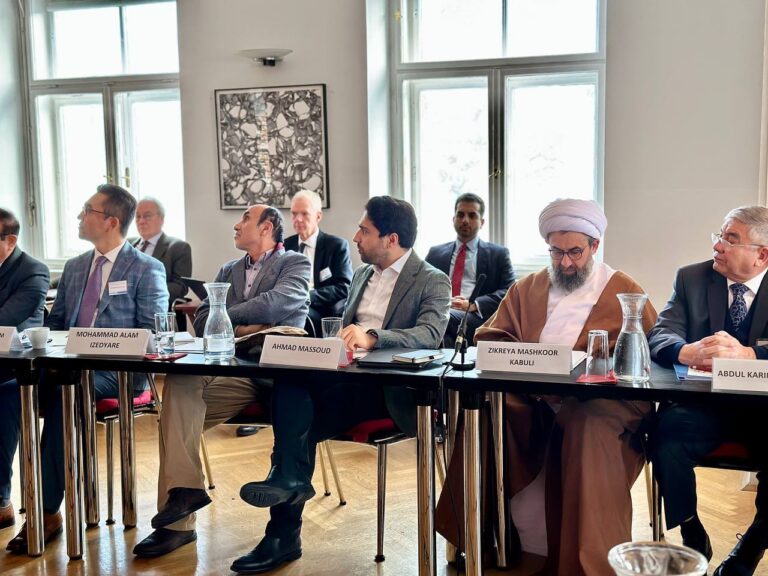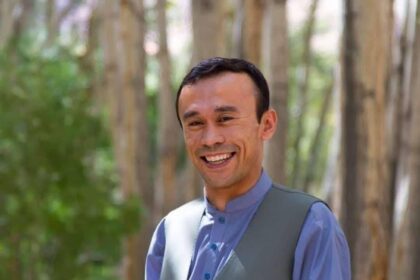RASC News Agency: The fourth round of the Vienna Process for a Democratic Afghanistan has commenced in Austria, featuring Ahmed Massoud and several other anti-Taliban figures. This conference began on Monday, June 24, with the participation of Ahmed Massoud, leader of the National Resistance Front; Mohammad Mohaqiq, leader of the People’s Islamic Unity Party of Afghanistan; Rangin Dadfar Spanta, former Foreign Minister and National Security Advisor; along with numerous leaders and members of Afghanistan’s political and civil institutions.
Ali Maisam Nazary, head of the National Resistance Front’s Foreign Relations Committee, shared on social media: “After nearly three years of Taliban horror and tyranny, the Afghanistani people are closer to achieving political unity and consensus to shape their country’s future.” Nazary added that the fourth round of the Vienna Process for a Democratic Afghanistan saw the attendance of leaders, representatives, and members from over 65 political and civil groups, as well as independent figures. The first round of this conference took place in April 2022, during which participants worked on a framework to continue these discussions.
Nazary emphasized: “The Vienna Process has, for the fourth time, brought together political and civil forces to collaborate on a democratic future for Afghanistan.” Ali Maisam Nazary positioned the Vienna conference as an alternative to processes that invite the Taliban, urging world governments to abandon the “failed policy of appeasement and delusion” and to support “political processes aimed at serving the people and restoring dignity and legitimacy to Afghanistan.”
The Vienna Process for a Democratic Afghanistan is hosted by the Bruno Kreisky Forum for International Dialogue, an organization active in initiating dialogue and negotiation processes for peace. Expected attendees included other former Afghanistani political leaders such as Ata Muhammad Noor, Salahuddin Rabbani of the Jamiat-e-Islami Party, and Abdul Rashid Dostum, leader of the National Islamic Movement, who, for unclear reasons, were absent from the conference.
Participants in the Vienna Process for a Democratic Afghanistan have consistently emphasized the formation of political unity, solidarity, and consensus for Afghanistan’s future. Resolutions from the conference have reiterated this focus, yet political parties and movements have not fully achieved this goal. Nonetheless, among the anti-Taliban factions, two fronts actively fighting within Afghanistan have recently reached an agreement and demonstrated solidarity.






